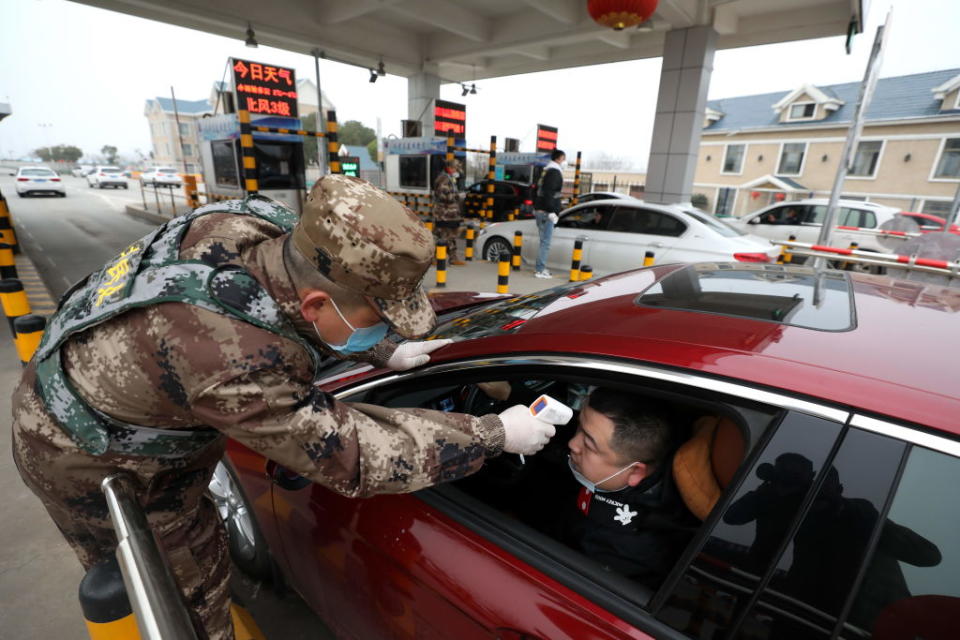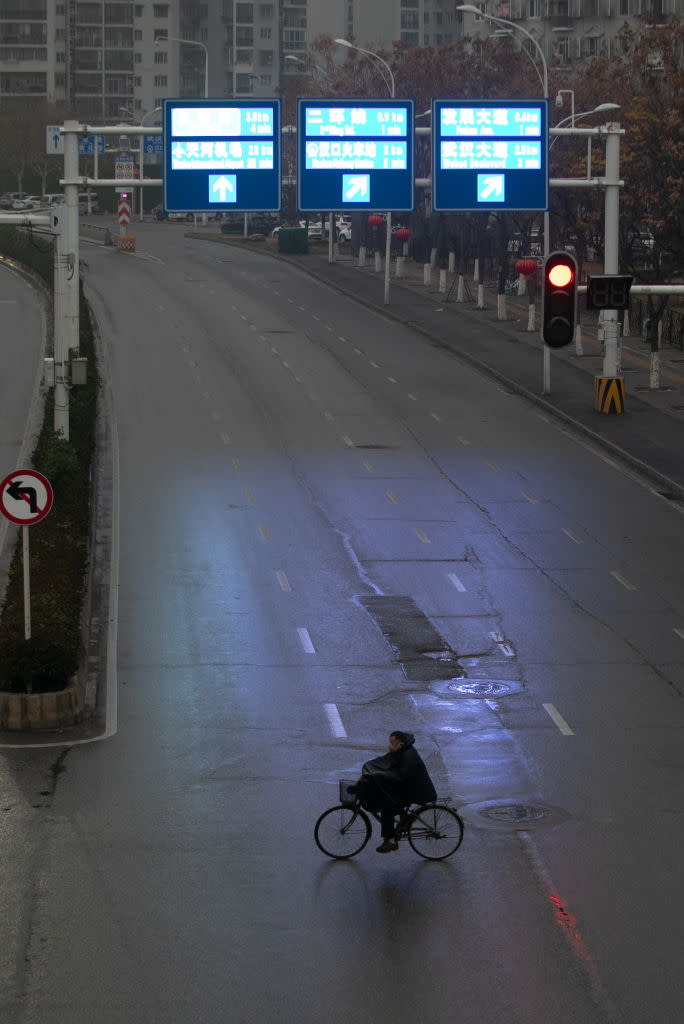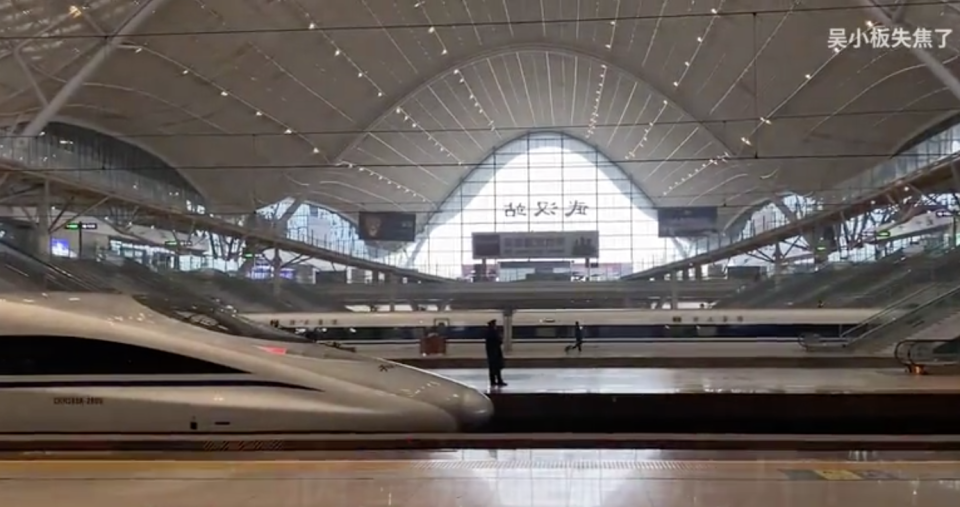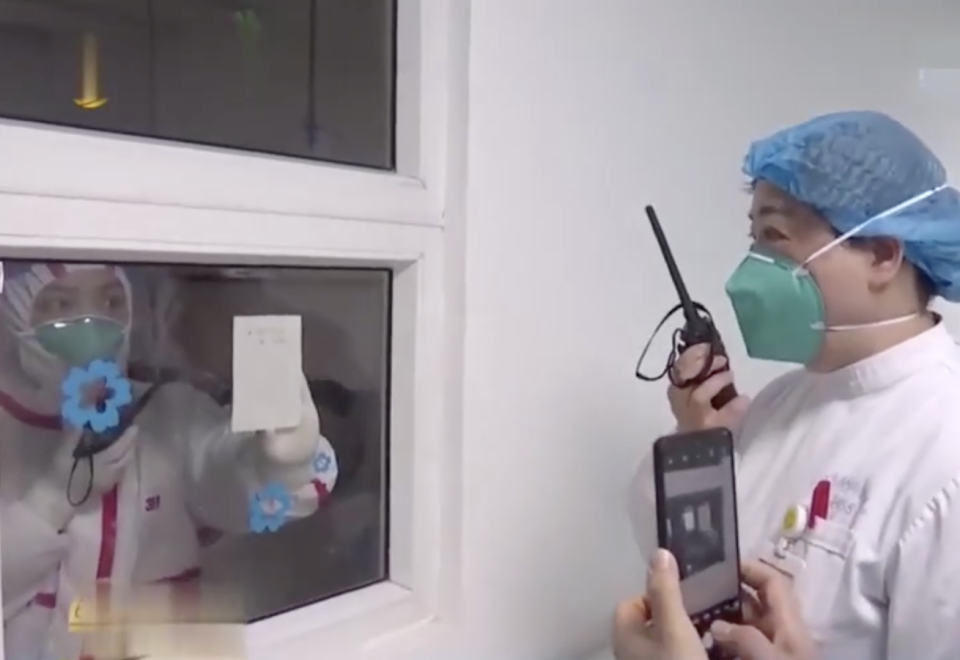'End of the world': Inside the locked down epicentre of deadly coronavirus
The World Health Organisation called the decision “unprecedented”.
On Thursday the city of Wuhan, home to 11 million people, was placed into lockdown as China confirmed 18 people have now died from the coronavirus, including one person 1000km from the epicentre in Hebei, while more than 600 had been infected.
There were eerie scenes across Hubei province’s capital as all public transport was shut down, including flights out of the city.



Images from Wuhan’s main train station show a normally bustling station filled with thousands of travellers completely empty on Thursday.
The city’s busy airport was also unrecognisable with just a handful of travellers trying to find a way out of the city.
However people were ordered not to leave and hours later, neighbouring Huangang, with a population of 7 million, was also placed into lockdown.
As the city slipped into isolation, residents thronged into hospitals for checks and scrambled for supplies, clearing out supermarket shelves and queuing for petrol.


Another video from a different angle - this sealed moving box transporting sick passengers out if the airport is in Fuzhou, Fujian Province. #wuhan #wuhanvirus pic.twitter.com/KvyZ0nSXQW
— Xinyan Yu (@xinyanyu) January 23, 2020
Roads were congested and traffic piled up as all drivers and passengers were tested at road stops.
Images show others parts of the city with little road or pedestrian activity.
Authorities in Huanggang ordered indoor entertainment venues including cinemas and internet cafes to close and were asking citizens not to leave other than under special circumstances.
Medics in the ICU of Wuhan’s top hospital heightened safety procedures, communicating through sealed windows with walkie talkies while treating patients.



"The lockdown of 11 million people is unprecedented in public health history,” Gauden Galea, the World Health Organisation's (WHO) representative in Beijing, told Reuters.
As news of the city’s lockdown spread, others began taking the precautionary measure. As of Friday morning, eight other towns and cities had followed suit with Wuhan.
Footage from Fuzhou’s airport shared by South China Morning Post journalist Xinyan Yu shows a man in a sealed quarantine box being wheeled away by authorities.
One resident in Wuhan told the BBC the restrictions implemented felt like they were nearing “the end of the world”.

Chinese New Year travel likely to spread coronavirus
Health officials fear the transmission rate will accelerate as hundreds of millions of Chinese travel at home and abroad during week-long holidays for the Lunar New Year, which begins on Saturday.
Beijing news outlets are reporting that the city is cancelling major public events including Chinese New Year temple fairs over the outbreak.

The previously unknown virus strain is believed to have emerged late last year from illegally traded wildlife at an animal market in the central Chinese city of Wuhan.
There is no vaccine for the virus, which can spread through respiratory transmission. Symptoms include fever, difficulty in breathing and cough, similar to many other respiratory illnesses.
Preliminary research suggested the virus was passed on to humans from snakes, but government medical adviser Zhong Nanshan has also identified badgers and rats as possible sources.


Deadly virus hits second continent
Chinese authorities gave no new details on the numbers of virus infections but it has been reported in Beijing, Shanghai and Hong Kong, and several other countries including the United States, stoking fears it is already spreading worldwide.
Of eight known cases worldwide, Thailand has confirmed four, while Japan, South Korea, Taiwan and the United States have reported one each.
In a report on Wednesday, Imperial College London said it estimated a total of 4000 cases of the coronavirus in Wuhan alone as of January 18, an infection rate based on the number of cases reported in China and elsewhere.

Despite this, the WHO says it is "a bit too early" to declare a new coronavirus a global health emergency.
"Make no mistake, though, this is an emergency in China. But it has not yet become a global health emergency. It may yet become one," he said.
In contrast with its secrecy over the 2002-03 Severe Acute Respiratory Syndrome (SARS) that killed nearly 800 people, China's Communist Party government has provided regular updates to avoid panic ahead of the holidays.
Some experts believe the new virus is not as dangerous as previous coronaviruses such as SARS and Middle East Respiratory Syndrome (MERS), which has killed more than 700 people since 2012.
"The early evidence at this stage would suggest it's not as severe," Australia's Chief Medical Officer Brendan Murphy told reporters.
Despite China's response, stock markets across Asia were on the back foot on Thursday, led by drops of roughly 1.5 per cent in Hong Kong and Shanghai while China's yuan fell to a two-week low.
Airports globally stepped up screening of passengers from China and the European Centre for Disease Control and Prevention said the further global spread of the virus was likely.
With AAP
Do you have a story tip? Email: newsroomau@yahoonews.com.
You can also follow us on Facebook, Instagram and Twitter and download the Yahoo News app from the App Store or Google Play.




